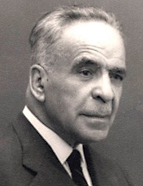

In 1930 he joined the group of lecturers at the Faculdade de Letras de Lisboa [ School of Arts and Humanities in Lisbon ] , applying for the chair with his dissertation A obra poética do Dr José Anastácio da Cunha – com um estudo sobre o anglo-germanismo nos proto-românticos portugueses [The poetic work of Dr José Anastácio da Cunha – with a study on Anglo-Germanism in the Portuguese proto-romantics ] (1930) and the “ free ” lesson, Fernão Lopes é ou não autor da “ Crónica do Condestabre ” ? [Is Fernão Lopes the author of the “Crónica do Condestabre” or not?] (1931). He collaborated with Seara Nova in 1934 and, together with Joaquim de Carvalho and Mário de Azevedo Gomes, ran the Diário Liberal (1934-1935). He was associated with the opposition to the Estado Novo, even though he lacked the most outspoken attitudes and, at the time, was already distancing himself from the fight against the establishment of the regime. In 1935, his name appeared on the well-known list of professors to be dismissed, but he was saved by his Germanist colleague and Germanophile minister Gustavo Cordeiro Ramos, who had been his contemporary in Évora. Students and some colleagues paid tribute to him in the Homenagem aos Professores Mário de Azevedo Gomes, Hernâni Cidade, Joaquim de Carvalho [Tribute to Professors Mário de Azevedo Gomes, Hernâni Cidade, Joaquim de Carvalho] (1935), in which the Literature students described him as “ the most be loved and respected of teachers ” (p. 9).
Until his retirement in 1957, he taught mainly History of Portuguese Literature and Camonian Studies, but also Portuguese Philology, Romance Philology, French Language and Literature, Spanish Literature and Italian Literature. A “ most upright ” professor ( Nemésio , p. XVI) – one day, apologising to his students, he told them he would be unable to continue a lesson because he had not prepared it properly – he had a modern pedagogical outlook – he would correct written tests with the student by his side, engaging in dialogue, keen to justify the classification – and he nurtured assistants who would later become decisive in the recently specialised areas of literature and linguistics, Jacinto do Prado Coelho and Luís Lindley Cintra. In academic life, he curbed the truculence and imposing style of other colleagues. For the “ romance family ” , he is the Father Cidade, the same person that prefaced Sebastião da Gama ’ s Diário [ Diary ] .
This work is financed by national funds through FCT - Foundation for Science and Technology, I.P, in the scope of the projects UIDB/04311/2020 and UIDP/04311/2020.
